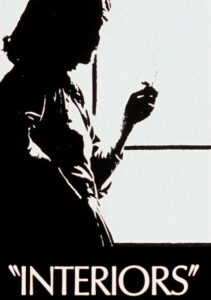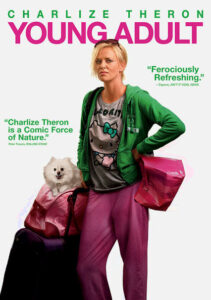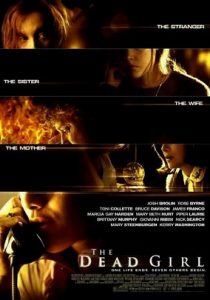Interiors-1978
Director Woody Allen
Starring Diane Keaton, Geraldine Page, Mary Beth Hurt
Scott’s Review #1,392
Reviewed August 24, 2023
Grade: A
Woody Allen films are not everyone’s cup of tea.
Typically, offbeat or even downright wacky comedies with quick-witted dialogue and irritating characters are not everyone’s preferred taste in film.
I’ve always adored the director’s works.
Allen hits a home run with Interiors (1978), his first dramatic film and my favorite. It even rivals classics like Annie Hall (1977) and Manhattan (1979) which most people frequently consider his best.
The famous director turns down the volume and slows the pace with a dark story about mental illness and the ravaging effect it has on a family, the struggling individual, and the other extended members.
Missing from this Woody Allen film are the prevalent one-liners and gimmicks mostly associated with his comedies. The only standard is the inclusion of frequent collaborator Diane Keaton who plays a successful poet, Renata.
The story centers on a middle-aged and upper-class couple’s disintegrating marriage. It forces their three grown daughters (Keaton, Mary Beth Hurt, and Kristin Griffith) to reveal their feelings about themselves and each other. They also have their share of difficulties.
Renata is successful but her husband is a struggling writer with marginal talent. He lusts after Renata’s sister, Flyn (Kristin Griffith), an actress only known for her good looks. Joey (Hurt) is a restless soul unable to decide on a career and jealous of Renata.
Mental illness is only one of their trials and tribulations.
The family resides in Manhattan, Connecticut, and Long Island, most likely the Hamptons so they are wealthy and assumed to be happy, healthy, and thriving.
They are anything but.
None of the daughters are successful at providing ample support to their devastated mother (played by Geraldine Page) who suffers from mental illness and is extremely fragile.
The cast is tiny, with only eight principals, each with a perspective. There are no villains. Only complicated characters with rich texture and substance.
I love the brilliant characterization and development and the many layers most of the characters possess. Each character, especially the father, mother, two of the daughters, and the new wife, Pearl, exceptionally played by Maureen Stapleton, can be heartily examined.
One might assume that the father Arthur played stoically by E.G. Marshall might be unlikable. After all, he requests a ‘separation’ from Eve which the audience knows is a soft-touch way of ultimately asking for a divorce. He then meets a new woman, a different type from his wife, and plans to marry her!
This does not go over well for anyone.
But Arthur is sympathetic and so is Pearl (the new wife). I rooted for the pair even though I felt bad for Eve.
The film culminates in a stunning sequence at the family’s Hampton residence amid Arthur and Pearl’s wedding. The family begrudgingly attends the simple dinner party-style wedding and pretends to be happy.
From a visual perspective, the art direction is flawless. Muted color tones of grey and brown perfectly complement the drab and depressing subject matter.
People have compared Interiors to an Ingmar Bergman film and I completely understand that. The film is dark, cold, and bleak but contains a sophistication and thought provocation mirroring Bergman films like Wild Strawberries (1957) and others.
Woody Allen crafts an astonishingly good screenplay with confidence and precision that only he can do. Interiors (1978) could have easily turned into a soap opera melodrama but remains enthralling and devastating throughout.
Oscar Nominations: Best Director-Woody Allen, Best Actress-Geraldine Page, Best Supporting Actress-Maureen Stapleton, Best Screenplay-Written Directly for the Screen, Best Art Direction


